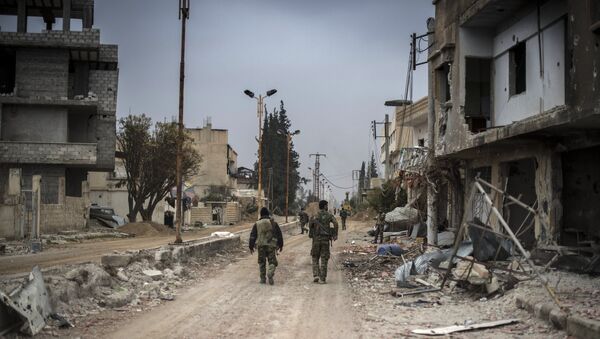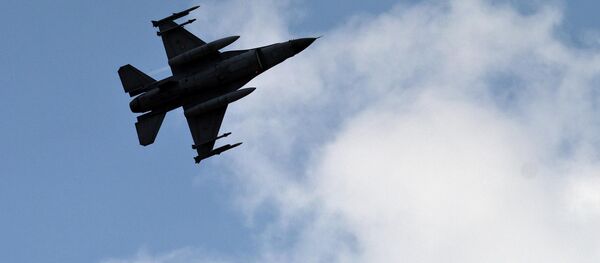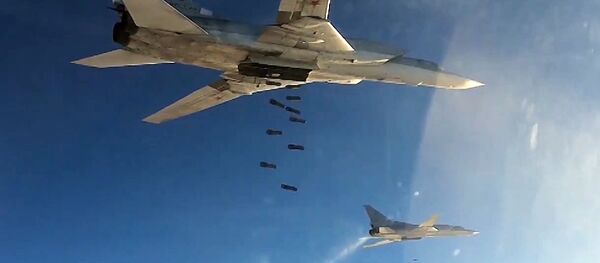According to the purpose of Russian airstrikes in Syria – to defeat the Daesh (Islamic State) terrorist group, it is clear that Russian jets and warships will continue their strikes to support the ground offensive by the Syrian Army.
With its military operation against terrorists in Syria, Russia has re-emerged as a major player in the Middle East and in 2016 it will not abandon its positions.
"Russia will change the form of its presence in the Middle East," geopolitical analyst Leonid Ivashov told TV channel Zvezda. "In 2016, Russia forces will deliver a blow to Daesh, particularly to its headquarters, communications facilities and sources of funding. Russia will also intensify its reconnaissance activities, including from space."
Russia will also boost its military and technical cooperation with Syria, Iraq, Iran, Egypt, and probably with some non-government organizations, including the Kurds, he added.
According to the analyst, in 2016 Egypt will pretend to provide leadership among Middle East countries. Saud Arabia which recently formed an anti-terrorist coalition of Arab nations is not powerful enough and cannot take the leading role.
"A Sunni coalition is a myth. Turkey, a member of the Saudi-led coalition, will hog the covers. Ankara has proved it does not care even about Washington’s opinion," Ivashov explained.
As for the US, in 2016 it is likely that Washington will make attempts to establish cooperation with Russia on the Middle East, the analyst assumed. The reason is the unprecedented level of Russia’s involvement in the regional affairs.
In 2016, Syria and Iraq will turn into an arena for the standoff between three powerful military coalitions, according to the analyst.
The Russian-led coalition comprising Bashar Assad’s government, Iraq and Iran hold the highest stakes. Its purpose is to defend Damascus, take control of Aleppo and Syria’s western regions, and finally drive push jihadists back to the desert areas, along the Iraqi border. The scenario seems quite realistic, especially with military support from Russia, Ivashov underscored.
The third coalition is led by the US. Pentagon’s main purpose is Raqqa, the capital of the caliphate. Both the US and its allies will carry out airstrikes only, and rely on Kurdish forces.
Despite the fact the three coalitions have the same main goal they are unlikely to agree, Ivashov pointed out.
There is also hope that in 2016 tensions between NATO and Russia will ease, he added. French President Francois Hollande and, particularly, German Chancellor Angela Merkel will try to weaken US influence and turn to Russia for cooperation in the fight against Daesh.
As for Russia’s strategy in Syria, no serious changes are predicted for 2016. The Russian task force unit will adhere to its tactics – carrying out airstrikes to support the ground offensive of the Syrian Army.
"The intensity of Russian airstrikes in Syria will be the same for now," analyst Konstantin Makienko said. "But in 2016 it may be reduced. Focus will be placed on pinpoint strikes. Russia has already made progress in the fight against Daesh, having seriously damaged its positions and infrastructure facilities."
It is also possible that Russia will put more efforts to the peaceful settlement in Syria. What is more, decentralization of the country cannot be ruled out. The territory may be divided into three parts, on the sectarian basis, he assumed.
"But as for the military operation, the situation will not significantly change," Makienko underscored.




